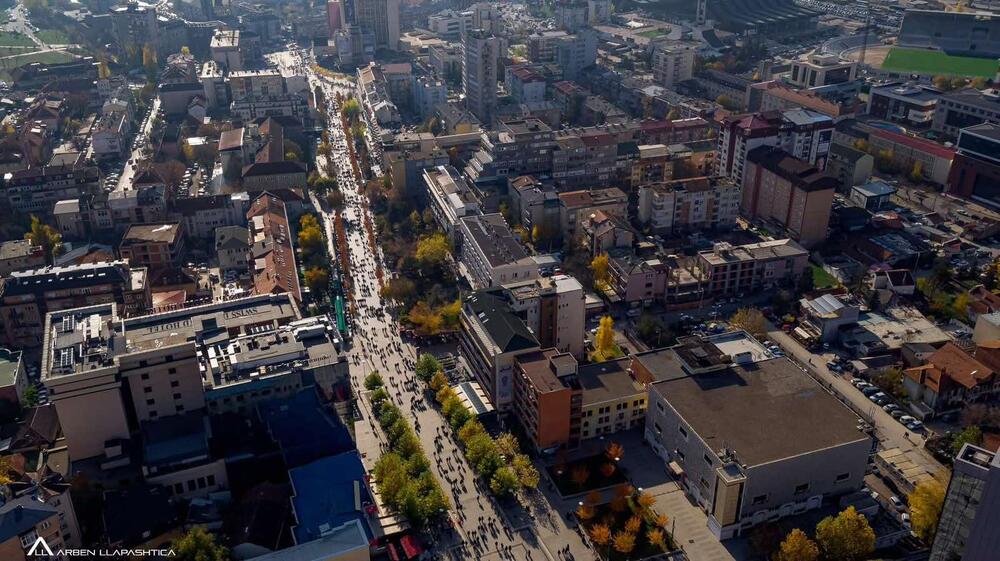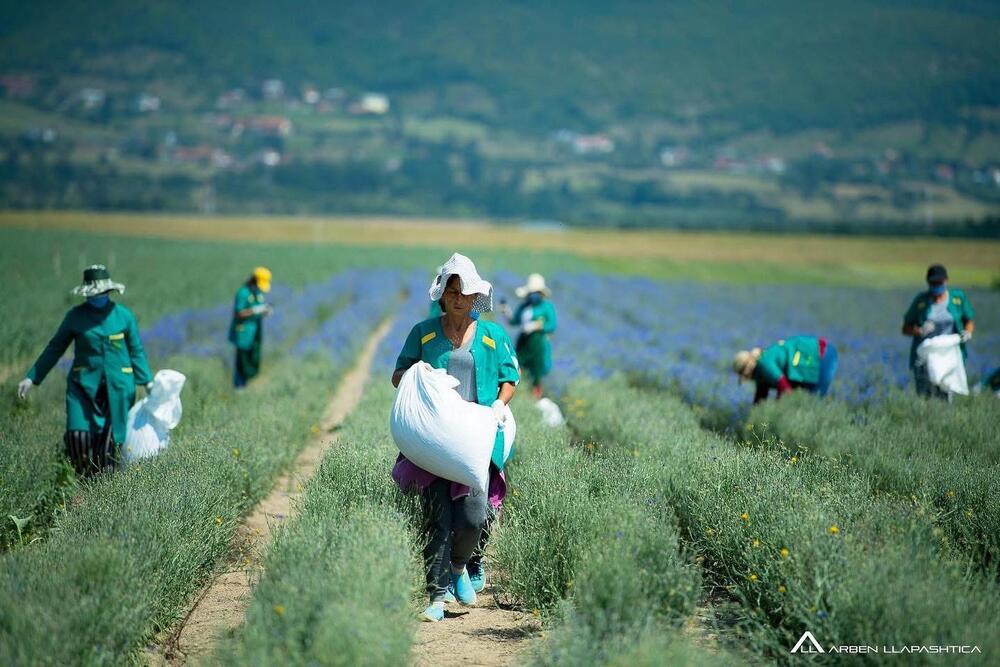The year 2024 was extremely important for Kosovo. Its highlight was the long-awaited conduct of the housing and population census. Registration of key data is of high relevance anywhere on the globe, whereas in Kosovo the census was even more valuable. Namely, due to a range of circumstances related to the COVID-19 pandemic and Kosovo’s institutional consolidation, the regular interval of 10 years between two registrations was not kept. Thus, instead of 2021, the census was held only in 2024. The data collected has enormous importance in Kosovo, where significant population shifts occurred since 2011 and where the lack of up to date information was a challenge in key policy fields. UNFPA was there every step of the way and we are excited to begin a new phase in Kosovo in support of our institutional partners as they delineate the data gathered for a new level of good governance.

Photo credit: Arben Llapashtica
Key census data
In terms of the overall resident population, there is a notable reduction from 1,739,825 to 1,602,515, indicating a 0.7% decline annually. The population distribution has shifted from peripheral towards centrally located municipalities. More importantly, there is a shift toward urban living with 50% residing in urban areas compared to 38% in 2011. In total, 9 municipalities saw their populations grow while 29 municipalities saw it decrease.
These figures signal that Kosovo is following the path of population reduction that is present elsewhere in the region. This is due to the steadily decreasing fertility rate, currently at 1.7, along with what is presumably the highest contributor: the constant pace of out-migration toward Western Europe. While challenges in migration data persist, indications are that the majority of the people emigrating are from the age bracket of 20 to 35 years.
The population age structure has also changed, with the population aged 0-14 decreasing to 22% (previously 28%), 15-64 at 67% (previously 65%) and the age group 65+ increasing to 11% (previously 7%). While the median age has increased to 34.82 from 29.97, it is still significantly lower than, for example, that of the European Union (44.5 years). Nevertheless, the trends in Kosovo are changing towards an older median and require an appropriate policy focus. All of the above indicators are consistent with modernization, growth and development, traditionally accompanied by lowering birth rates and longer life expectancy.
A rise in the living standards of Kosovo is also visible through the housing dataset. The number of housing units increased by almost 100,000 (from 340,945 in 2011 to 414,273 in 2024), whereas the average square meters per person rose from 13.30 to 20.41. The average number of household members is 4.5, or 1.5 less than in 2011. Unused housing units doubled – from 99,808 in 2011 to 182,849 in 2024. While further analysis is required, this can be partially attributed to property investments made by Kosovars living abroad. Gender equality showed encouraging signs, with the percentage index of women’s higher-level education raising from 3.02 to 8.64.
UNFPA and the conduct of census
UNFPA has been closely engaged in support to the Kosovo Agency of Statistics (KAS) and other institutions throughout the census process. As early as November 2022, UNFPA supported the KAS in a “Population Census Week,” which gathered representatives from institutions, academia, civil society, and international organizations, to deliberate on the census’ importance, methodology, and implementation approaches. The conference also featured insights from statistical agencies of neighboring countries, providing regional perspectives and best practices. As the census date grew nearer, we worked with the KAS to streamline the adoption of international best practices in census methodology. It encompassed the development of data collection tools, training programs for enumerators, and the implementation of public awareness campaigns. Promoting inclusivity was also important. Jointly with the Kosovo Disability Forum (KDF), concrete efforts were made to ensure that individuals with disabilities were appropriately represented.

Photo credit: Arben Llapashtica
Utilizing the census data for good governance across UNFPA’s mandated fields
The data collected in the 2024 census provides a comprehensive foundation for shaping policies responsive to the population's current and future needs. The data serves as a critical resource for addressing key challenges such as demographic shifts, emigration trends, urbanization, and the growing need for gender-responsive family policies and support for aging populations. These insights will allow the authorities to prioritize investments in social services, healthcare, education, and infrastructure, ensuring equitable development across urban and rural areas.
UNFPA Kosovo has instantly begun analyzing and interpreting the data to ensure that it is fully leveraged for strategic planning and resource allocation. With aging as an increasing priority, in December 2024 we collaborated with the KAS to launch the Active Ageing Index (AAI), a vital tool for assessing the extent to which older persons in Kosovo are living active and healthy lives. The findings presented highlighted the current situation of older persons in Kosovo and set the stage for a further discussion on targeted policies, whose development we will support. Likewise, in the census’ aftermath, UNFPA assisted KAS in classifying urban and rural settlements, aiming to inform equitable and sustainable development policies, enhancing access to services and infrastructure across Kosovo.
We are looking forward to our next stage of working with partners in Kosovo on translating the data into expanded good governance across our mandated areas, from SRHR to gender equality, the inclusion of youth and sensitive groups, gender-responsive family policies and family-friendly workplaces, and Kosovo’s demographic resilience.
 Photo credit: Arben Llapashtica
Photo credit: Arben Llapashtica


